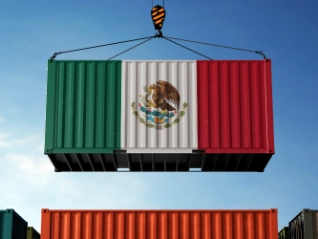Our Atradius Exclusive series will provide you with the latest insights from Atradius Economists, annual reviews of corporate payment practices, sector performance and more.

Reports and whitepapers from our industry experts

Latest news and insights

Latest blogs

Helpful guides at your fingertips

Your questions answered

Examples of high quality credit management processes and practices

Success stories from our diverse range of clients
Tariff-related economic uncertainty still weighs on commercial construction activity


Accelerating AI demand drives one of world’s fastest-growing industries

Asia drives pharma growth, although outlook for all regions remains healthy

Amid a fragmented global landscape, the EU and India are pursuing different strategies to build economic resilience...

Discover how the global economy is navigating trade tensions and uncertainty, with AI investment driving resilience and shaping growth prospects for 2026 and beyond

Industry growth slows as global trade applies the brakes

Can South Africa's GNU party overcome tensions and structural challenges to unlock GDP growth?
Viewing 7 out of 213
Economic effects will be modest for the time being, but the agreement is likely to spur mutual key sectors´ exports and...


An investigation involving Fed chairman Powell may weaken trust in US monetary policy, adding global headwinds and...

When a U.S. company files for Chapter 11 bankruptcy, the effects often reach far beyond America. For European creditors,...

From energy markets to supply chains, Washington’s assertive moves are redefining sovereignty norms and...

Our Q1 of 2026 Industries Forecast per Market provides business performance and credit risk...

Europe hopes faster AI adoption will make up for lagging investment in platforms and infrastructure

Atradius Syndicate 1864 will help financial institutions manage trade credit risk more efficiently
Viewing 7 out of 64







Viewing 7 out of 26
Trade credit insurance is far more than a safety net—it’s a strategic tool for SMEs.


Cultural variables shape payment behaviour, negotiation patterns and risk outcomes in cross‑border trade

Understanding what drives credit insurance costs gives businesses valuable insight into risk, so they can trade with confidence in any...

Longevity isn’t about nostalgia. It’s about resilience, adaptability, and purpose. Here’s why...

Smart strategies to protect cash flow, strengthen client relationships, and ensure invoices are paid on time...

Companies face credit risk when delivering goods without upfront payment, but with customised work this risk begins sooner

Find out the common late payment excuses and how to respond to safeguard your business's cash flow and...
Viewing 7 out of 38
- What is trade credit insurance?
- What is credit risk?
- Why credit management is important?
- What is business insurance?
- SME Insurance Singapore
- What is debt recovery?
- What is export credit insurance?
- What is political risk insurance?
- How much does credit insurance cost?
- How can I reduce DSO?
- How can I insure my export trade credit?
- How do you know if a business is failing?
- Why do traders take out credit insurance?
Every customer is a...


Atradius supports Park Polymer's...

With the backing of Atradius’s resources, EnCom Polymers has been able to expand business with existing customers and go...

BVV GmbH grew internationally and recognised risks such as companies on the brink of insolvency in plenty of time to mitigate the...

Atradius Surety has enabled Vinci Construction France to expand their sources of finance beyond their...

How we are part of Continental Banden Groep B.V.'s business process, minimising risk and supporting sales

Ben Green, President and Owner at...
Viewing 7 out of 8
Omron has achieved sustainable growth while navigating the uncertainties of China-US trade relations and regional manufacturing transformation.


FERM offers competitive payment terms and limits their credit risk to developing countries by using Atradius Dutch State Business (DSB) and the DDGF.

El Ganso credits our support in helping the fashion brand grow from a domestic-focused Spanish startup to a successful international business.

Janson Bridging uses export credit insurance from Atradius Dutch State Business (DSB) to offer favourable credit terms to customers located in emerging...

Late payers prompted content marketing agency KMOdynamoo to take out an Atradius credit insurance policy and has resulted in better debtor management.

Calidad Pascual partners with international credit insurance firm Crédito y Caución Atradius to gain additional knowledge of international markets.

By providing open dialogue, insight and valuable credit information we helped Brook Green Supply improve their internal credit...
Viewing 7 out of 9
Case study
Metalco Inc.: Driving new business with quick communication
Ben Green, President and Owner at Metalco Incorporated in Chicago, Illinois, explains how Atradius Trade Credit Insurance has helped him secure new business confidently.
Explore



































